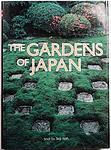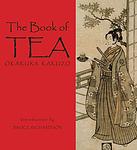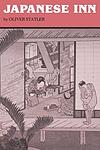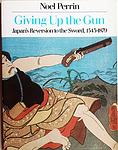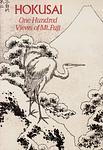The Greatest "Japan, Asian History" Books of All Time
Click to learn how this list is calculated.
This list represents a comprehensive and trusted collection of the greatest books. Developed through a specialized algorithm, it brings together 300 'best of' book lists to form a definitive guide to the world's most acclaimed books. For those interested in how these books are chosen, additional details can be found on the rankings page.
Genres
The "Japan" category for books encompasses a wide range of literature that explores the history, culture, and society of Japan. This includes works of fiction, non-fiction, and poetry that delve into the country's traditions, customs, and beliefs, as well as its modern-day politics, economy, and technology. Books in this category may also focus on specific aspects of Japanese culture, such as its cuisine, art, or entertainment, or explore the experiences of Japanese people living both within and outside of Japan. Overall, the "Japan" category offers readers a rich and diverse selection of books that provide insight into one of the world's most fascinating and complex cultures.
Asian History is a category of books that focuses on the historical events, cultures, and societies of Asia. This category includes books that cover a wide range of topics, including the ancient civilizations of China, Japan, and India, the rise and fall of empires, the impact of colonialism, and the modernization of Asian countries. It also includes books that explore the social, political, and economic changes that have shaped the region over time. Overall, Asian History provides readers with a comprehensive understanding of the rich and diverse history of Asia.
Countries
Date Range
Reading Statistics
Click the button below to see how many of these books you've read!
Download
If you're interested in downloading this list as a CSV file for use in a spreadsheet application, you can easily do so by clicking the button below. Please note that to ensure a manageable file size and faster download, the CSV will include details for only the first 500 books.
Download-
1. The Pillow Book by Sei Shōnagon
"The Pillow Book" is a collection of personal observations, anecdotes, and reflections by a woman in the Heian court of Japan. It presents a detailed and vivid picture of court life, including the lavish ceremonies, the rivalries and intrigues, the idle pastimes of the courtiers, and the romantic escapades of the empress and her consorts. The book also contains lists, poetry, and personal musings, providing a unique perspective on the culture and customs of the Heian period.
-
2. The Confessions Of Lady Nijo by Lady Nijo
This book is a candid autobiographical account of a Japanese woman who lived during the Kamakura period. Initially serving as a concubine to the Emperor, she later becomes a wandering Buddhist nun. Her narrative provides a unique insight into the court life of the time, detailing her intimate experiences, political intrigues, and the societal expectations of women. Her journey from the luxuries of the imperial court to the ascetic life of a nun offers a poignant exploration of love, spirituality, and personal transformation, reflecting the complex interplay between the secular and religious life in medieval Japan.
-
3. War Without Mercy by John W. Dower
This book provides a detailed analysis of the racial aspects that influenced the Pacific War during World War II. It explores the racial stereotypes, propaganda, and policies that were used by both the United States and Japan, and how these factors contributed to the extreme violence and hatred that characterized the conflict. The book also examines the impact of these racial attitudes on the post-war relations between the two countries.
-
4. The Road Through Miyama by Leila Philip
The book is a memoir that recounts the author's experience living in the rural Japanese village of Miyama, where she apprenticed with a traditional potter. Immersing herself in the rhythms of rural life and the demanding discipline of pottery, she navigates cultural barriers and finds a deep connection to the landscape and its people. Through her journey, the author explores themes of tradition, craftsmanship, and the intricate relationship between human endeavor and the natural world, all while painting a vivid portrait of a community holding onto its heritage amidst modernity.
-
5. Hiroshima Notes by Kenzaburō Ōe
"Hiroshima Notes" is a poignant collection of essays that delve into the aftermath of the atomic bombing of Hiroshima, exploring the enduring impact on the survivors and the city itself. The author, through a series of visits to Hiroshima in the 1960s, reflects on the moral and ethical implications of nuclear warfare, the resilience of the human spirit, and the responsibilities of humanity. Through interviews with survivors and thoughtful contemplation, the book provides a deep and multifaceted perspective on suffering, healing, and the quest for peace in the shadow of one of history's most devastating events.
-
6. Japanese Homes And Their Surroundings by Edwin Morse
"Japanese Homes and Their Surroundings" explores the architecture, layout, and design of traditional Japanese homes, providing a detailed examination of the cultural and practical aspects that influence residential structures in Japan. The book delves into various elements such as construction materials, room functions, and the integration of nature with living spaces, reflecting the aesthetic and philosophical ethos of Japanese life. Through illustrations and descriptions, it offers insights into how these architectural forms foster a harmonious relationship between human habitation and the natural environment, highlighting the unique blend of simplicity, utility, and beauty in Japanese domestic architecture.
-
7. The Gardens Of Japan by Teiji Itoh
"The Gardens of Japan" explores the art and aesthetics of Japanese gardens, tracing their development from ancient times to the modern era. The book delves into various garden styles, from the serene rock gardens of Zen Buddhism to the ornate tea gardens and expansive stroll gardens. Richly illustrated and detailed, it examines the philosophical and cultural underpinnings that have shaped garden design in Japan, highlighting the intricate interplay of nature, spirituality, and art. The author provides insights into the symbolic elements of these gardens, their use of space and natural materials, and the meticulous care that goes into their creation and maintenance, offering readers a deep appreciation of this enduring art form.
-
8. Dawn To The West by Donald Keene
"Dawn to the West" is a comprehensive analysis of Japanese literature from the late 19th century through the 20th century, exploring both fictional and non-fictional works. The book delves into the evolution of Japanese literature as it underwent profound transformations influenced by Western literary traditions, while also maintaining its unique cultural identity. It examines the works of numerous Japanese authors, providing insights into their contributions to modern literary themes and techniques, and discusses how historical events, such as World War II, shaped the literary landscape of Japan. This scholarly work is essential for understanding the development and nuances of modern Japanese literature.
-
9. Japanese Philosophy by John C. Maraldo, Thomas P. Kasulis, James W. Heisig
This book provides a comprehensive overview of Japanese philosophy, exploring its unique characteristics and its evolution through history. It delves into the diverse intellectual traditions of Japan, including both well-known philosophical schools and lesser-known but equally significant ideas. The text examines how Japanese philosophy has been influenced by and has interacted with other philosophical traditions, particularly Western philosophy, while also highlighting its distinct approach to fundamental philosophical issues such as ethics, aesthetics, and the nature of reality. Through a detailed analysis, the book offers insights into how Japanese philosophical thought has contributed to broader philosophical discourse and how it reflects the cultural and historical context of Japan.
-
10. Wrong About Japan by Peter Carey
In this travel memoir, a father and his anime-obsessed son embark on a journey to Japan in an attempt to understand the son's fascination with the country's pop culture. Their adventure leads them to meet manga artists, anime directors, and cultural commentators, through which they explore the nuances of Japanese animation and its historical contexts. As the father attempts to bridge the cultural gap and connect with his son, he confronts his own preconceptions and discovers the complexities of modern Japanese culture, which cannot be easily understood through the lens of Western perspectives. The narrative delves into themes of cultural exchange, the generational divide, and the search for authenticity in a land where the line between reality and fiction often blurs.
-
11. Hiroshima Diary by Michihiko Hachiya
The book is a poignant and detailed personal account of the aftermath of the atomic bombing of Hiroshima, as recorded by a Japanese physician who survived the attack. The diary entries begin on August 6, 1945, the day Hiroshima was bombed, and continue for several weeks. Through his observations and experiences, the author provides a deeply human perspective on the devastation and suffering endured by the victims, as well as the immense challenges faced by the medical community. His writings not only document the physical and emotional toll of the nuclear attack but also reflect on the resilience and compassion that emerge amid such profound tragedy.
-
12. The Book Of Tea by Kakuzō Okakura
"The Book of Tea" explores the intricate and nuanced philosophy behind the Japanese tea ceremony, presenting it as a blend of Zen Buddhism, Taoism, and the ethics of the Samurai. The author delves into the aesthetic and cultural significance of tea in Japan, discussing how it influences various aspects of life and art, from architecture to flower arranging. The book also reflects on the broader implications of tea as a spiritual and meditative practice, emphasizing simplicity, naturalness, and a profound appreciation for the beauty of the everyday. Through this lens, the tea ceremony becomes a metaphor for a harmonious and mindful approach to life.
-
13. Japanese Inn by Statler, Oliver.
This book provides a captivating exploration of Japanese culture and history through the lens of a traditional inn, or ryokan, that has been operated by the same family for over a thousand years. Through detailed descriptions and engaging storytelling, the narrative delves into the inn's storied past, the generations of the family who have maintained it, and the myriad guests who have passed through its doors, from samurai to modern tourists. The work not only offers a unique lens into the evolution of Japanese hospitality and social customs but also reflects on the country's broader historical shifts and continuities. It is a richly woven tapestry that combines personal stories, historical events, and cultural insights, providing readers with a deep and nuanced understanding of Japan.
-
14. Giving Up The Gun by Noel Perrin
"Giving Up The Gun" explores Japan's unique historical decision to abandon the use of firearms in warfare after initially adopting them in the 16th century. The book delves into the social, cultural, and political factors that influenced this remarkable reversal, highlighting Japan's focus on traditional samurai swordsmanship and the broader implications for Japanese society and its isolationist policies. Through a detailed examination of historical events and philosophical shifts, the narrative provides insights into how this decision shaped Japan's military and cultural development in the ensuing centuries.
-
15. Hokusai by Henry D. Smith
This book provides a comprehensive exploration of the life and works of Katsushika Hokusai, a renowned Japanese artist and printmaker of the Edo period. The text delves into Hokusai's artistic development, examining how his work evolved over the decades, his influence on both Eastern and Western art, and his lasting impact on the genre of ukiyo-e, or woodblock prints. The biography also contextualizes Hokusai's iconic pieces, such as "The Great Wave off Kanagawa," within the broader scope of his oeuvre and the historical and cultural factors that shaped his unique artistic vision.
-
16. The Rising Sun by John Toland
"The Rising Sun" provides an in-depth historical account of Japan during World War II from the perspective of the Japanese. The book explores the political and military events leading up to the war, the conduct of the war itself, and the aftermath, including the bombings of Hiroshima and Nagasaki. The narrative is based on interviews, diaries, memoirs, and letters of the people who lived through these events, offering a unique and comprehensive look at Japan's role in the war.
-
17. Embracing Defeat: Japan in the Wake of World War II by John W. Dower
This book provides a detailed exploration of Japan following World War II, focusing on the country's defeat and subsequent occupation by Allied forces. It delves into the profound changes in Japanese society, politics, and culture during this period. The narrative captures the struggles of ordinary Japanese people, their feelings of guilt and shame, as well as their efforts to rebuild their lives and nation. It also examines the role of the United States in shaping post-war Japan, highlighting the complexities and contradictions of this transformative era.
-
18. Hirohito and the Making of Modern Japan by Herbert P. Bix
This book provides a comprehensive and controversial historical account of Emperor Hirohito of Japan, debunking the popular belief that he was a mere figurehead during World War II. Instead, the book argues that Hirohito was actively involved in the decision-making processes that led Japan into the war, and that he managed to escape blame for the nation's actions due to clever political maneuvering during the post-war period. The book also explores Hirohito's role in shaping modern Japan, detailing his influence on its military, political, and cultural institutions.
Reading Statistics
Click the button below to see how many of these books you've read!
Download
If you're interested in downloading this list as a CSV file for use in a spreadsheet application, you can easily do so by clicking the button below. Please note that to ensure a manageable file size and faster download, the CSV will include details for only the first 500 books.
Download





